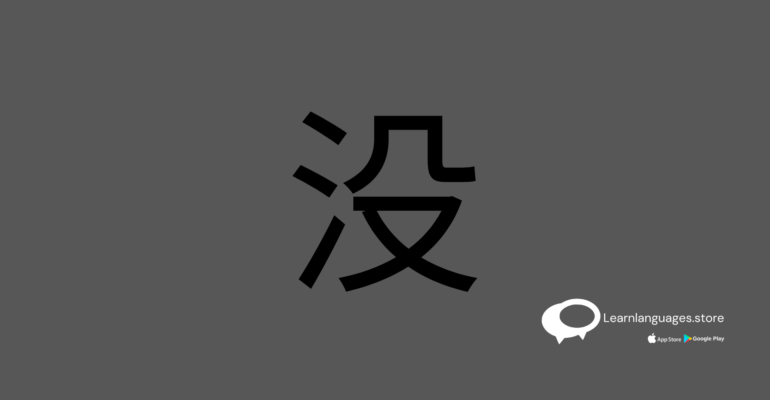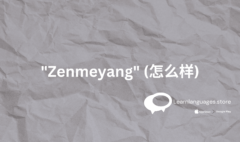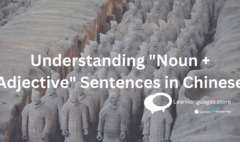The Special Case of Negating “Have” with 没 (méi) in Chinese
The Special Case of Negating “Have” with 没 (méi) in Chinese
Estimated reading time: 3 minutes

In Chinese, the verb 有 (yǒu), meaning “to have,” is negated differently from other verbs. Instead of using 不 (bù) to negate it, you must use 没 (méi). This blog will guide you through the correct usage and provide examples to help you understand this unique aspect of Chinese grammar.
Contents
- Structure
- Examples
- The Short Form of 没有 (méiyǒu) Is 没 (méi)
- See Also
- Sources and Further Reading
1. Structure
In Chinese, nearly all verbs can be negated with 不 (bù). However, the verb 有 (yǒu) is an important exception and must be negated with 没 (méi).
Structure:
没 + 有 (+ Obj.)
Note: Due to the special relationship between 没 (méi) and 有 (yǒu), the pinyin for 没有 is normally written without a space: “méiyǒu.”
2. Examples
Here are some sentences to illustrate the correct usage of 没有 (méiyǒu):
- 我 没有 问题。
- Wǒ méiyǒu wèntí.
- I don’t have any questions.
- 我们 现在 没有 钱。
- Wǒmen xiànzài méiyǒu qián.
- We don’t have money now.
- 他 没有 工作 吗?
- Tā méiyǒu gōngzuò ma?
- Does he not have a job?
- 他们 没有 爸爸 妈妈。
- Tāmen méiyǒu bàba māma.
- They don’t have parents.
- 我们 在 北京 没有 房子。
- Wǒmen zài Běijīng méiyǒu fángzi.
- We don’t have a house in Beijing.
- 你 爸爸 没有 手机 吗?
- Nǐ bàba méiyǒu shǒujī ma?
- Does your dad not have a cell phone?
- 你们 在 上海 没有 朋友 吗?
- Nǐmen zài Shànghǎi méiyǒu péngyou ma?
- Do you not have friends in Shanghai?
- 我 的 老师 现在 没有 男朋友。
- Wǒ de lǎoshī xiànzài méiyǒu nánpéngyou.
- My teacher doesn’t have a boyfriend now.
- 他们 都 没有 电脑 吗?
- Tāmen dōu méiyǒu diànnǎo ma?
- Do they all not have computers?
- 这 个 周末 你们 都 没有 时间 吗?
- Zhège zhōumò nǐmen dōu méiyǒu shíjiān ma?
- Do you all not have time this weekend?
Remember: Trying to negate 有 (yǒu) with 不 (bù) is a classic mistake. Always use 没 (méi) with 有 (yǒu).
- 我 不 有 车。
- Wǒ bù yǒu chē. (Incorrect)
- 我 没有 车。
- Wǒ méiyǒu chē. (Correct)
- I don’t have a car.
3. The Short Form of 没有 (méiyǒu) Is 没 (méi)
没有 (méiyǒu) can be shortened to 没 (méi) without altering its meaning.
Examples:
- 我 没 钱。
- Wǒ méi qián.
- I don’t have money.
- 你 没 男朋友 吗?
- Nǐ méi nánpéngyou ma?
- Do you not have a boyfriend?
- 你们 没 车 吗?
- Nǐmen méi chē ma?
- You don’t have a car?
- 老板 现在 没 时间。
- Lǎobǎn xiànzài méi shíjiān.
- The boss doesn’t have time right now.
- 我 没 工作,我 老公 也 没 工作。
- Wǒ méi gōngzuò, wǒ lǎogōng yě méi gōngzuò.
- I don’t have a job. My husband doesn’t have a job either.
Learn Languages Store
Vashi,
Email: services@learnlanguages.store










